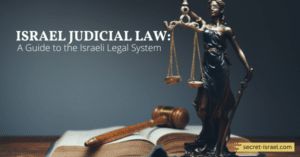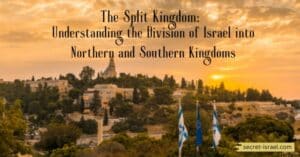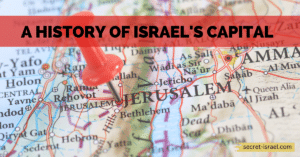The Yom Kippur War, also known as the October War. It was a major conflict between Israel and its Arab neighbors that took place from October 6 to 25 in 1973. The war had far-reaching consequences for the region and the world. Highlighted the importance of intelligence gathering, military preparedness, diplomacy, and international cooperation.
It ultimately ended with a ceasefire agreement, which paved the way for future peace initiatives such as the Camp David Accords in 1978. Today, more than four decades later, understanding the history and legacy of this conflict is essential for achieving peace in the Middle East and beyond.
This devastating war lasted for only three weeks but had important ramifications for the region up to the present. In this blog post, we will look at the causes of the Yom Kippur War, major battles and their outcomes, diplomatic efforts to end it, and some lessons learned by all participants in the conflict. Read on to learn more about this turbulent period in Middle Eastern history!
Overview of the Yom Kippur War
The Yom Kippur War, also known as the October War, was fought between Israel and a coalition of Arab states led by Egypt and Syria. The war began on October 6, 1973, which was the holiest day in the Jewish calendar, and lasted until October 25, 1973.
It was the fourth major conflict between Israel and its Arab neighbors in the span of 25 years. The conflict was a result of years of tension between Israel and Arab countries and was triggered by a surprise attack by the Arab forces. The Yom Kippur War was a pivotal moment in the history of the Middle East and had far-reaching consequences for the region and the world.

Causes of the Yom Kippur War
There were several causes of the Yom Kippur War, including political, military, and economic factors. One of the main reasons was the ongoing territorial dispute. Between Israel and its Arab neighbors over the Sinai Peninsula, which had been occupied by Israel since the 1967 Six-Day War. Egypt, under the leadership of President Anwar Sadat, saw the war as an opportunity to regain control of the Sinai.
Another cause was the failure of past peace negotiations and the lack of progress in resolving the conflict through diplomatic means. Both Israel and the Arab states were unwilling to compromise on their demands for territory and recognition, and this led to a breakdown in negotiations.

In addition, there were military factors that contributed to the outbreak of the war. The Arab states had been building up their military capabilities. They believed that they were in a stronger position to confront Israel than they had been in the past. The Arab leaders also hoped that the element of surprise would give them an advantage in the conflict.
Finally, economic factors also played a role in the war. The Arab oil embargo of 1973, which was a response to Western support for Israel in the conflict. Had a significant impact on the global economy and heightened tensions in the region.
Major Battles of the Yom Kippur War
The Yom Kippur War was characterized by several major battles between the Israeli Defense Forces (IDF) and the coalition of Arab states led by Egypt and Syria.
One of the most significant battles of the war was the Battle of the Chinese Farm, which took place in the Sinai Peninsula. In this battle, the Israeli commandos launched a surprise attack on the Egyptian positions and were able to destroy a large number of tanks and artillery pieces.
Another major battle was the Battle of Mount Hermon, which was fought between the Israeli and Syrian armies. The Syrian army launched a series of attacks on Israeli positions on Mount Hermon. Which overlooks the Golan Heights. Despite heavy losses, the Israeli soldiers were able to hold their ground and repel the Syrian advances.

The Battle of Ismailia was also a key battle of the war. In this battle, the IDF launched a counterattack on the Egyptian army, which had advanced into the Sinai Peninsula. The Israeli soldiers were able to push back the Egyptian forces and recapture several key positions.
Other notable battles of the Yom Kippur War include the Battle of the Suez Canal, the Battle of Hizayon, and the Battle of the Valley of Tears. All of these battles resulted in significant casualties for both sides and had a major impact on the outcome of the war. In the end, the IDF was able to emerge victorious, but at a high cost in terms of human life and resources.
Impact of the Yom Kippur War
The Yom Kippur War had significant and far-reaching impacts on the Middle East and the world.
One of the main impacts of the war was the loss of life and the destruction of infrastructure in the region. Thousands of soldiers and civilians were killed on both sides, and many cities and towns were damaged or destroyed. The war also led to a significant increase in oil prices, as Arab oil-producing countries imposed an embargo on countries that supported Israel, causing economic difficulties around the world.
Another impact of the war was the shift in the balance of power in the region. Prior to the war, Israel was seen as the dominant military power in the Middle East. However, the Yom Kippur War showed that Arab states could pose a significant threat to Israel. It led to increased arms sales and military cooperation between Arab countries and the Soviet Union.

The war also had implications for the peace process between Israel and its Arab neighbors. Following the war, there was a renewed effort to achieve a comprehensive peace settlement between Israel and the Arab states.
This led to the Camp David Accords in 1978, which led to a peace treaty between Israel and Egypt. But the conflict between Israel and the Palestinians has yet to be fully resolved.
Furthermore, the Yom Kippur War had a profound psychological impact on Israelis and their sense of security. The surprise attack by the Arab states shook Israel’s belief in its own invincibility and led to a long period of introspection and self-examination.
This experience also helped shape Israel’s approach to defense and security, leading to an increased emphasis on intelligence and preparedness.
Diplomatic Efforts to End the Yom Kippur War
After the outbreak of the Yom Kippur War in 1973, diplomatic efforts were launched to end the conflict.
First of all, there was a United Nations-led peace mission. The United Nations Security Council passed Resolution 338, calling for an immediate ceasefire and direct negotiations between Israel and its Arab adversaries. This resolution resulted in a limited ceasefire between the two sides on October 22nd 1973.
In addition, U.S. Secretary of State Henry Kissinger embarked on Shuttle Diplomacy in an effort to achieve an Israeli-Egyptian disengagement of forces agreement. As part of this initiative, Kissinger shuttled back and forth between Jerusalem, Damascus and Cairo over a period of 10 days in order to broker a settlement that would bring about a lasting peace in the region.

In addition to these diplomatic efforts, international powers such as the United States also provided both financial and military aid to Israel during the war. This assistance helped ensure that Israel could withstand economic pressure from its Arab neighbors and continue fighting.
Ultimately, these diplomatic efforts were successful in ending the conflict between Israel and its Arab adversaries. On October 26th, 1973, Egypt and Syria accepted Resolution 338 which called for a ceasefire and direct negotiations between Israel and its Arab adversaries while retaining their territorial gains from before the war began. This resolution paved the way for further peace initiatives such as Camp David Accords in 1978
Lessons Learned from the Yom Kippur War
The Yom Kippur War was a pivotal moment in the history of the Middle East, and many valuable lessons were learned from the conflict.
Firstly, the war highlighted the importance of intelligence gathering and information sharing. Israel’s failure to anticipate the Arab attack was due in part to a lack of intelligence gathering, which is why after the war, intelligence became a central pillar in Israel’s defense and security policy.
Secondly, the war emphasized the importance of preparedness and readiness. Israel had let its guard down before the outbreak of the war, believing that its military dominance would deter any attack. The war showed the dangers of complacency, and Israel subsequently invested significantly in ensuring its military readiness and preparedness for future conflicts.

Thirdly, the conflict highlighted the importance of diplomacy and negotiations. Following the war, there was a renewed effort to achieve a comprehensive peace settlement between Israel and its Arab neighbors. This led to the Camp David Accords in 1978, which remains a landmark peace agreement between Israel and Egypt.
Fourthly, the conflict demonstrated the dangers of relying too heavily on military might to achieve political objectives. The war showed the need for greater efforts in achieving peace through diplomatic means, rather than relying solely on military means.
Finally, the conflict highlighted the importance of international alliances and cooperation. The United States played a central role in ending the conflict, providing both financial and military aid to Israel and diplomatic support to help broker peace. The War showed that working together as international allies can lead to a more just and stable social-political environment.
In conclusion
The Yom Kippur War was a pivotal moment in the history of the Middle East and had far-reaching consequences for both Israelis and Arabs. The war taught many important lessons, including the importance of intelligence gathering, military preparedness, diplomacy, and international cooperation.
Today, more than four decades after it began, these lessons remain as relevant and important as ever. As the world continues to confront a host of global challenges, understanding the history and legacy of this conflict is essential for achieving peace in the Middle East and beyond.












